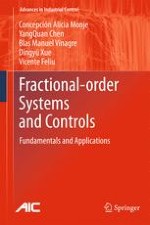2010 | OriginalPaper | Buchkapitel
Fractional-order Proportional Integral Controller Tuning for First-order Plus Delay Time Plants
Erschienen in: Fractional-order Systems and Controls
Verlag: Springer London
Aktivieren Sie unsere intelligente Suche, um passende Fachinhalte oder Patente zu finden.
Wählen Sie Textabschnitte aus um mit Künstlicher Intelligenz passenden Patente zu finden. powered by
Markieren Sie Textabschnitte, um KI-gestützt weitere passende Inhalte zu finden. powered by
PID (proportional integral derivative) controllers are the most popular controllers used in industry because of their simplicity, performance robustness, and the availability of many effective and simple tuning methods based on minimum plant model knowledge [82]. A survey has shown that 90% of control loops are of PI or PID structures [83, 84]. In control engineering, a dynamic field of research and practice, better performance is constantly demanded; therefore, developing better and simpler control algorithms is a continuing objective.
